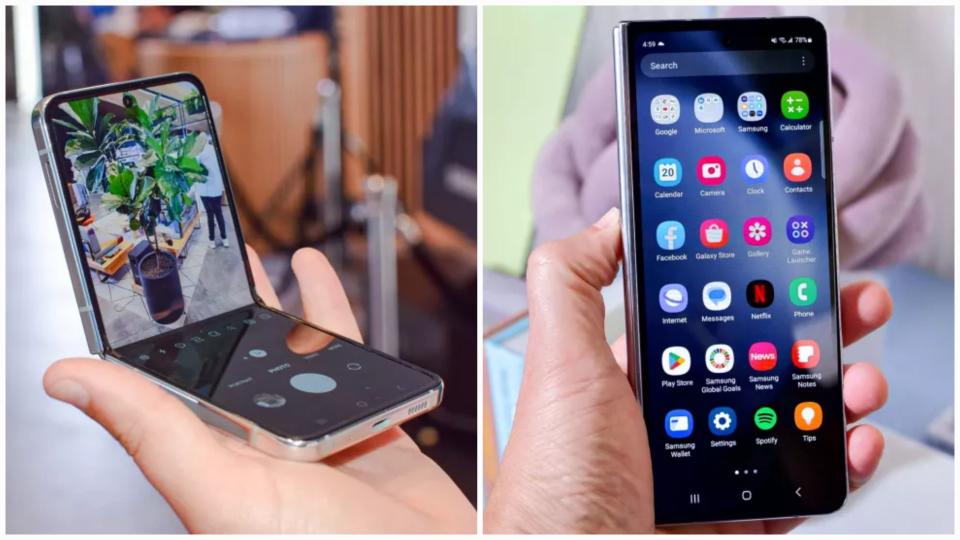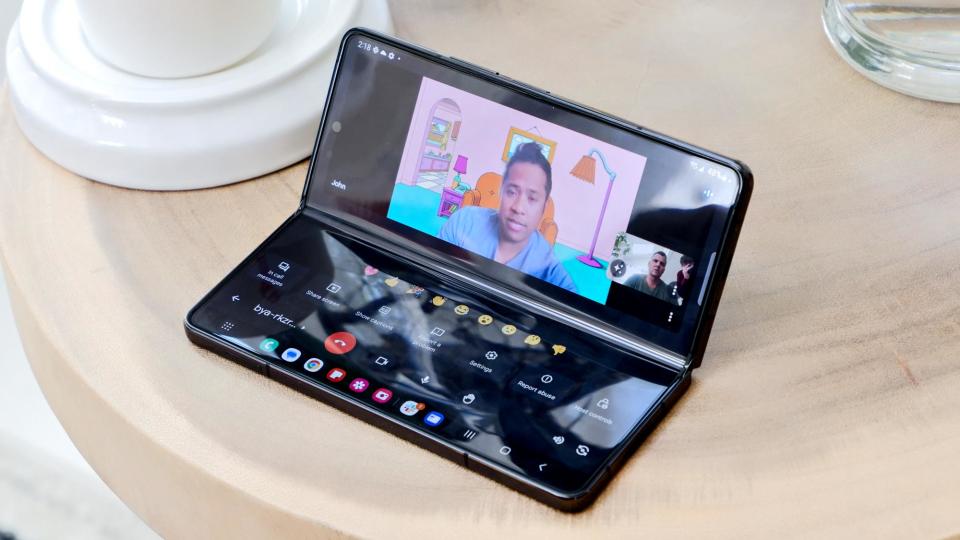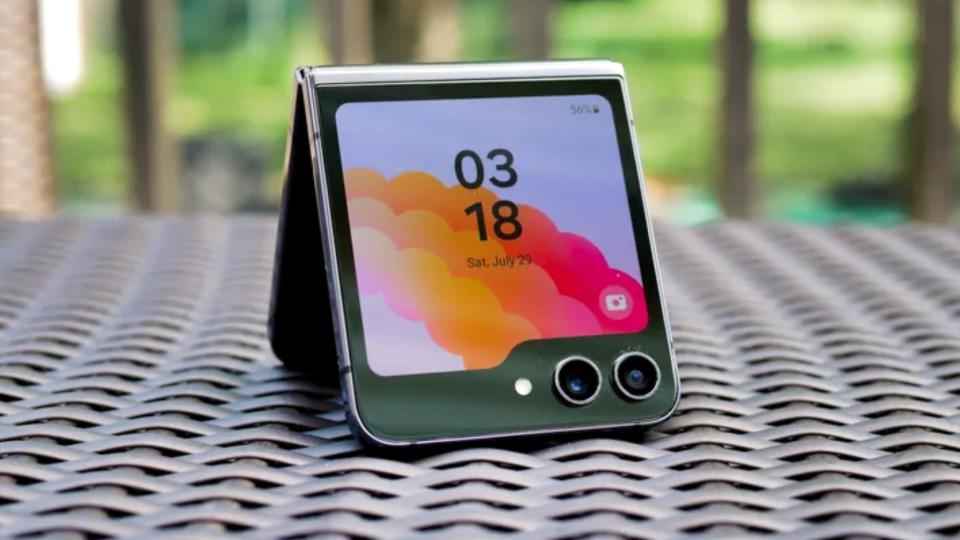Galaxy Z Fold 6 and Flip 6 — this is how Samsung can make them stand out at Unpacked

While Apple previews its upcoming iOS 18 release this week at WWDC 2024, Samsung will plowing ahead with work on its own upcoming foldable phone releases for later this summer. And like the iPhones Apple will be focusing on with this week's announcement, I imagine that Samsung's behind-the-scenes work for the Galaxy Z Fold 6 and Galaxy Z Flip 6 will touch on one topic in particular — AI.
Samsung has certainly made no secret of its plans to make AI a centerpiece of its flagship phones this year. Already we've had the Galaxy S24 launch to start out 2024, with new Galaxy AI features introduced alongside those phones. In fact, many Galaxy AI capabilities like the Circle to Search tool and generative photo editing features have found their way to older Samsung flagships via software updates, Samsung's current foldables included.
And now, Samsung has essentially confirmed that Galaxy AI tools are coming to its foldables, too. In a blog post, Won-Joon Choi, a Samsung executive vice president who heads the company's mobile R&D office in its Mobile Experience business, said that "we will further optimize the Galaxy AI experience for the upcoming foldable devices," which you'd be safe to assume means the Z Fold 6 and Z Flip 6 arriving at the next Galaxy Unpacked event.
"Our foldables are the most versatile and flexible form factor in Samsung Galaxy and when combined with Galaxy AI, these two complementary technologies will together unlock all new possibilities," Choi added.
Details are sketchy beyond that, but I would take Choi's comments to mean that AI is not just going to be a part of the Galaxy Z Fold 6 and Galaxy Z Flip 6. New features are going to reflect those phones' designs, giving Samsung its best opportunity to not only differentiate their foldables in an increasingly crowded field but convince more people why they need to embrace foldable phones.
Samsung's foldable phone history

It may not feel like it, but Samsung's been making foldable phones for a while, with the first Galaxy Z Fold arriving nearly half-a-decade ago — it was called the Galaxy Fold back then — and the original Galaxy Z Flip arriving in 2020. Samsung's first flip phone didn't even have 5G connectivity, that's how long ago it debuted.
There've been some bumps along the way — a delayed Galaxy Fold launch here, a visible crease in the phones' displays there — but by this point, Samsung has pretty much nailed the mechanics of making a foldable. With recent releases introducing redesigned hinges, Samsung is fine-tuning things, not making radical changes, to either the Fold or the Flip.
Take the biggest rumored hardware changes for this year's models. The Galaxy Z Fold 6 is supposed to get a wider cover display to improve usability (and to negate an advantage devices like the OnePlus Open and Google Pixel Fold enjoy). The Galaxy Z Flip 6 is reportedly increasing the size of its cover display (after that screen dramatically expanded on the Galaxy Z Flip 5) and possibly bumping up the megapixel rating on its external cameras. Necessary changes, sure, but not radical ones.
So yes, Samsung has figured out how to build a foldable phone in a couple different form factors. What it hasn't managed to do is fully convince enough people that this design is something you'll want to pay up to have, as Samsung's foldables cost considerably more than phones with more conventional designs. The "affordable" model — the Galaxy Z Flip — costs $999, which is as much as some smartphones, and the Galaxy Z Fold has an even price. What are you getting in return for that money?

For now, Samsung's answer has been a bigger screen that's easier to tote around when its phones are folded shut. And the phone maker has introduced some features that take advantage of the folding display, such as Flex Mode which creates a dedicated control panel when you fold your phone into a certain position. The Galaxy Z Fold is particularly useful at running multiple apps at once, even if some people find the OnePlus Open's approach to multitasking to be a better experience.
These features are nice to have, but they don't add an essential feel to Samsung's foldables. AI could change that.
Galaxy AI and Samsung's foldable phones

Given what Samsung's Choi has said, we know that Galaxy AI features will be part of Samsung's foldable phone announcement in the summer. What less clear is what exactly those features might be, though we can assume that they'll likely tie into the foldable form of the Fold and Flip.
You could imagine that multitasking might be involved in a foldable-specific Galaxy AI tool, especially as it relates to the Galaxy Z Fold 6. Maybe we'll get a tool that can summarize the contents of one app, and then format that summary so that you can mail it or text it to a colleague — all without any intervention on your part. Basically, what I'm looking for would be the ability to have three different apps open on a Galaxy Z Fold 6 display and a Galaxy AI tool that could perform one task in one app and share the results with the others.
For either the Galaxy Z Fold 6 or Galaxy Z Flip 6, having an AI tool that works from the cover display and aves you from having to ever open either phone would be a welcome addition, too. The physical changes Samsung is reportedly making to cover screens — altering the aspect ratio of the Z Fold 6's outer panel while expanding the size of the screen on the Z Flip 6 — indicates a recognition that people like to get a lot of work done on that screen. Future Galaxy AI features should also reflect that reality.
Finally, one of the best things about the Galaxy Z Fold's 7.6-inch interior display is the amount of screen space it provides you, which can come in particularly handy for tasks like photo or video editing. (That S Pen supported by the Galaxy Z Fold devices is valuable for those tasks, too.) I'd like to see a Galaxy AI tool that can help with generative editing on a larger workspace.
Galaxy Z Fold 6 and Galaxy Z Flip 6 AI outlook
Integrating AI into its mobile devices is certainly a priority at Samsung, but the phone maker has also spoken of its desire to make foldable phones more widely accepted by mainstream users. Developing foldable-specific AI tools is going to give Samsung the chance to address both of its goals. And it sounds like Samsung's ready to seize that opportunity.
